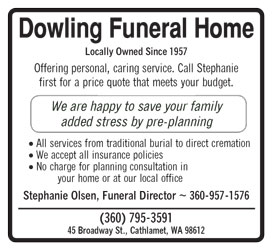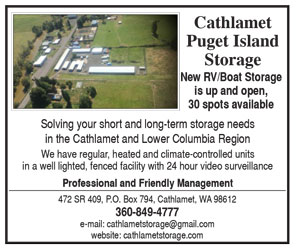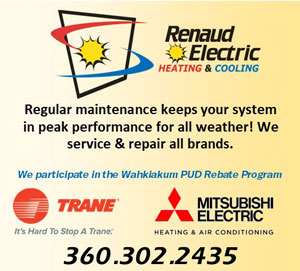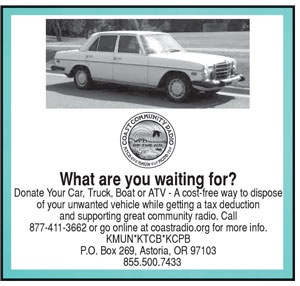Legislative candidates speak
October 13, 2016

Diana Zimmerman
Seated in back, l-r, Dean Takko, Sue Pederson, Teresa Purcell, Jim Walsh, Jimi O'Hagan, and Brian Blake took turns answering questions in a candidate forum sponsored by the League of Women Voters in Kelso on Sunday.
Six candidates for the 19th Legislative District took positions on a variety of topics at a League of Women Voters Candidate Forum on Sunday in Kelso.
After introductions, the candidates were asked questions from the League of Women Voters and the audience including. Below is the first question and each candidate's response.
What particular economic development opportunities to do you feel could benefit the 19th legislative district?
For State Senator, District 19
Sue Pederson (R): I think that the management of our fisheries could use some improvement. I have ideas to increase hatchery production. Serious discussions with the federal government about sea lions and birds that might be feeding on salmon smolts, put a large effort to build up our fisheries resources more than they have been in years.
In energy we have opportunities for hydro. I would work on modifying Initiative 937, which excluded hydro power from our renewable energy resources, which would have a lot of ramifications for our power bills and our fisheries.
Timber, we absolutely need to start accessing our timber for jobs. I'm concerned about the marbled murrelet protection that is coming up. I think we need to work with the federal government on not redoing the northern spotted owl debacle because it pretty much shut down our forest to our timber industry. I don't want to see that happen again with the marbled murrelet. I think there are ways to recover these species without making such an impact on our jobs. We have excellent ports that need to be developed further
Incumbent Dean Takko (D): I certainly agree with Susan on the fishery issue. We need to ramp up our hatchery production but we need to have a major philosophical discussion about wild salmon/native spawning salmon. That's part of the problem that we have in hatchery production. We're managing to that instead of putting fish in the river.
Another thing we need to do for economic development especially in this corner of the state is to bring back grant money to areas that are economically challenged. The bill was vetoed, but we need to work to get those CURB grants back.
Infrastructure. I was one of many who voted to sweep the money from infrastructure funds to balance the operating budget. I think there is a great deal of concern about that. A lot of us know we need to get those infrastructure monies back. A robust timber economy. Transfer some lands that are encumbered with marbled murrelet and spotted owl, get them out so we can log again.
For State Representative, Position 1
Teresa Purcell (D): One of the things that is so important is that we actually have the infrastructure that is necessary to attract the private businesses that will create the family wage jobs. When we look at this district, we have broad areas that have no access to broadband or cell phone service. We have areas where we don't have the basic 21st century tools that even our existing natural resource based industries need. I've been talking to the shellfish industry folks about how we solve the permitting problem that they have right now--how do we bring people together to tackle those issues.
I have also been bringing people together to talk about cross laminated timber which is creating a product that is forward looking, innovative, broadly used in Europe, but there are only four manufacturers in North America, and the environmental, labor and business communities can come together and work on that. So we can get those manufacturing jobs in place so we can have a sustainable timber industry.
We need to diversify and we need to have the tools that we need in place to attract those businesses. This is a very competitive environment we're in, we're competing with other communities across Washington state. It will not happen magically if we don't have the pieces in place to attract those industries. We need to build those in public/private partnership.
Jim Walsh (R): We do need a diversified economic base here. Everybody knows that this economy in this region was a single industry economy for decades. We made a bargain some years ago to agree to that industry being decimated in exchange for an economic system based on the administration of public benefits. That is not a good trade. We need to go back to square one. Develop a real diversified economic base here that timber is part of, transportation is part of, ports are essential, that manufacturing may be part of and construction is part of.
We need to have a balanced economic base here something we all talk about but how do we make that happen? Do we make it happen with grants? Well, grants can be part of it, but the real way we can develop a diversified and integrated economic base is by simplifying and clarifying the rules of economic engagement and not allowing radical groups and special interest groups to hijack the permitting process, the approval process, the basic development building blocks of moving industry into this area. We need to clarify the rules and apply them evenly and fairly and that is the challenge we have in Olympia and that is the challenge I will help solve.
For State Representative, Position 2
Incumbent Brian Blake (D): You've heard infrastructure, I wholeheartedly agree. I think our road system, having modern sewers, water systems, water delivery in Longview is a huge topic right now.
Investing in that infrastructure. Education. I think our K-12 system absolutely critical. That is going to be a huge part of what we talk about in the budget. Our higher ed system, over my 14 years we've been able to build two large buildings using state resources on the campus of LCC and two large buildings at the north end of Grays Harbor. It's going to allow us to deliver services better there. I think at this point now we need to start investing in the students in those systems better than we have in the past.
I think tourism is certainly part of our future. I think we need to better develop our tourism system. The 19th district doesn't have much federal land but it has extensive national forest and national parks north and east of it. It was interesting to read the article today where the forest service said they were going to introduce common sense to their planning for recreational access. That is an amazing concept. I would propose that we introduce common sense to everything we do in government.

Diana Zimmerman
Brian Blake is vying to retain his position for District 19 in the Washington State House of Representatives. He spoke on Sunday in a candidate forum sponsored by the League of Women Voters in Kelso.
Jimi O'Hagan (NP): I'm concerned about the young people coming into small businesses. I'm concerned about who would want to become a producer of our gross national product when our national debt is as high as it is and government employees have some of the best wages and the best benefits. Today if I were a young person I would not be so encouraged to run into private enterprise. I would be more looking at going into a public job with the best pay and best benefits rather than struggling in small business. This bothers me.
We must discuss our national debt. We are all part of it. The states are surviving off it, just as well as the federal government. We need to rein in the national debt. We need to look at the thing with a sober, sober look at it. Is this sustainable? What do we need to do to make this thing sustainable?
We need to make better opportunities for producers and downsize government. We really need to look at the amount of pay for government employees. We need to consider equal opportunities and equal protections of the laws. Ask yourself who should be entitled to this best paying, best benefit job?













Reader Comments(0)